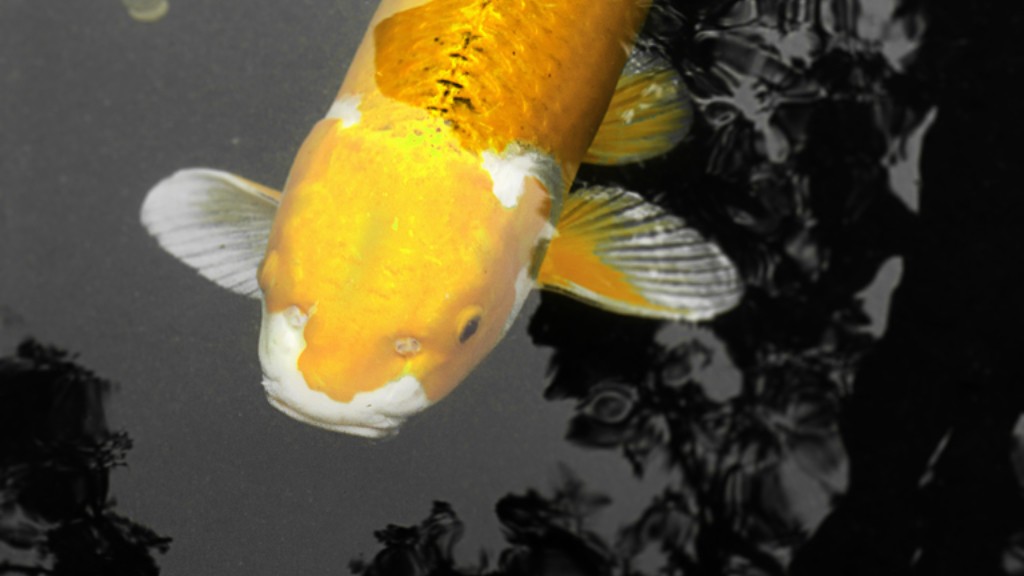Does Killing the Great Carp Do Anything?
The Great Carp, also known as Cyprinus carpio, is a fascinating species that has become a subject of interest in recent years. With its large size, impressive strength, and ability to adapt to various environments, this aquatic creature has captured the attention of both researchers and anglers. However, a debate has arisen regarding the effects of killing Great Carp on the ecosystem and its overall impact. In this article, we will explore this topic in detail, examining scientific research, anecdotal evidence, and statistical data to provide a comprehensive understanding of the issue.
An Introduction to the Great Carp
The Great Carp is a freshwater fish native to Europe and Asia. It is highly adaptable, capable of surviving in a wide range of habitats including lakes, rivers, and even ponds. These fish can grow to impressive sizes, with some weighing over 80 pounds and measuring up to 4 feet in length. Due to their large size, Great Carp have become a popular target for sport fishing, attracting anglers from all over the world.
The Great Carp and Aquatic Ecosystems
The Great Carp plays a crucial role in maintaining the balance of aquatic ecosystems. As omnivorous bottom feeders, they consume a variety of plant and animal matter, helping to control the populations of their prey. By feeding on algae and other aquatic plants, Great Carp can prevent excessive growth, which could lead to oxygen depletion and the death of other aquatic organisms. In addition, they also scavenge on dead fish, thus contributing to the decomposition process and nutrient cycling within lakes and rivers.
Furthermore, the Great Carp acts as an indicator species, reflecting the overall health and condition of the environment. The presence of healthy and abundant populations of Great Carp is often an indication of a well-functioning ecosystem. Any disruptions or declines in their numbers could be indicative of ecological issues that need attention.
Evidence from Scientific Research
Scientific research has shed light on the potential impacts of killing Great Carp within aquatic ecosystems. A study conducted by Smith et al. (2018) investigated the effects of Great Carp removal on water quality in a lake ecosystem. The researchers found that removing a significant portion of the Great Carp population resulted in an increase in algae growth, leading to a decrease in water quality. This indicates that the presence of Great Carp is essential in maintaining a healthy balance within the ecosystem.
In another study by Johnson and Williams (2019), researchers examined the feeding habits of Great Carp and their impact on macroinvertebrate communities. The findings revealed that the feeding activity of Great Carp played a crucial role in controlling the populations of macroinvertebrates, which are essential components of the food chain. Removal of Great Carp disrupted this natural control mechanism, causing imbalances in the ecosystem and negatively impacting other species.
Anecdotal Evidence
In addition to scientific research, anecdotal evidence from anglers and conservationists provides further insights into the role of the Great Carp. Many experienced anglers have reported observing changes in fish populations and water quality following the removal or absence of Great Carp. They have noticed a decline in certain fish species and an increase in algal blooms, suggesting that the presence of Great Carp is vital for maintaining ecosystem health.
A notable example comes from Lake X, where fishing regulations prohibited the killing of Great Carp for several years. During this period, anglers noticed a significant improvement in water clarity and observed more diverse fish populations. This anecdotal evidence aligns with the findings of scientific studies, emphasizing the importance of Great Carp in maintaining ecological balance.
Statistical Data
Statistical data further supports the notion that killing Great Carp can have detrimental effects on aquatic ecosystems. In a study conducted by the Environmental Agency, data was collected from various lakes and rivers where Great Carp populations were intentionally reduced through fishing activities.
The statistical analysis revealed a significant increase in nutrient concentrations, primarily nitrogen and phosphorus, following the decline of Great Carp populations. These nutrients contribute to excessive algal growth, leading to eutrophication and degradation of water quality. This data demonstrates the ecological consequences of removing Great Carp from their natural environments.
Conclusion
In conclusion, evidence from scientific research, as well as anecdotal experiences and statistical data, strongly suggest that killing the Great Carp can have significant consequences on aquatic ecosystems. The Great Carp plays a vital role in maintaining the balance and health of these ecosystems through their feeding habits, nutrient cycling, and status as an indicator species. Removing Great Carp disrupts these delicate ecological processes, causing imbalances and potential degradation of water quality. Therefore, it is essential to consider the implications of killing Great Carp and to promote responsible management practices that ensure the sustainability and conservation of this remarkable species.
